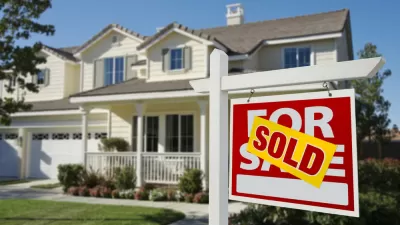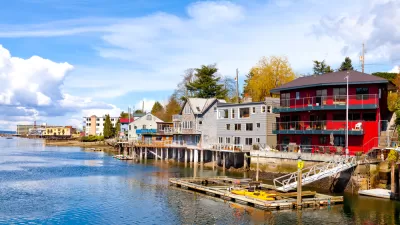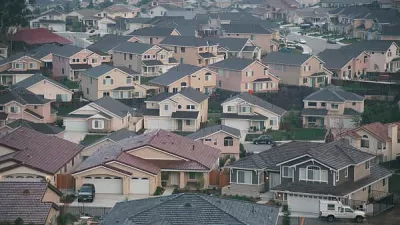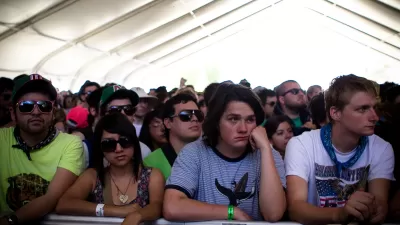Black homeownership rates have been slow to recover from the great recession and the gap between whites and blacks in home ownership is bigger today than it was in the 1980s.

"Forty-three percent of blacks owned homes in 2017, according to an annual report from the Joint Center for Housing Studies of Harvard University," Jonnelle Marte writes for the Washington Post. That's a lot lower than the 72 percent home ownership rate for whites.
"The gap persists even as African Americans have experienced other major financial gains since the downturn," Marte writes. Black unemployment is down to 5.9% nationwide, but, while many have been able to find work after the 2008 downturn, the effects of that period still linger for a population that was more likely to have been foreclosed on or to have lost their employment.
In 1968 after the passage of the Fair Housing Act, the percentage of African American families who owned a house rose, closing some of the gap between black and white home ownership, but those gains have been wiped out. The current gap is bigger today than it was 30 years ago.
FULL STORY: ‘We haven’t made any progress’: Black homeownership is stuck near 30-year lows

Planetizen Federal Action Tracker
A weekly monitor of how Trump’s orders and actions are impacting planners and planning in America.

San Francisco's School District Spent $105M To Build Affordable Housing for Teachers — And That's Just the Beginning
SFUSD joins a growing list of school districts using their land holdings to address housing affordability challenges faced by their own employees.

The Tiny, Adorable $7,000 Car Turning Japan Onto EVs
The single seat Mibot charges from a regular plug as quickly as an iPad, and is about half the price of an average EV.

Seattle's Plan for Adopting Driverless Cars
Equity, safety, accessibility and affordability are front of mind as the city prepares for robotaxis and other autonomous vehicles.

As Trump Phases Out FEMA, Is It Time to Flee the Floodplains?
With less federal funding available for disaster relief efforts, the need to relocate at-risk communities is more urgent than ever.

With Protected Lanes, 460% More People Commute by Bike
For those needing more ammo, more data proving what we already knew is here.
Urban Design for Planners 1: Software Tools
This six-course series explores essential urban design concepts using open source software and equips planners with the tools they need to participate fully in the urban design process.
Planning for Universal Design
Learn the tools for implementing Universal Design in planning regulations.
Smith Gee Studio
City of Charlotte
City of Camden Redevelopment Agency
City of Astoria
Transportation Research & Education Center (TREC) at Portland State University
US High Speed Rail Association
City of Camden Redevelopment Agency
Municipality of Princeton (NJ)





























